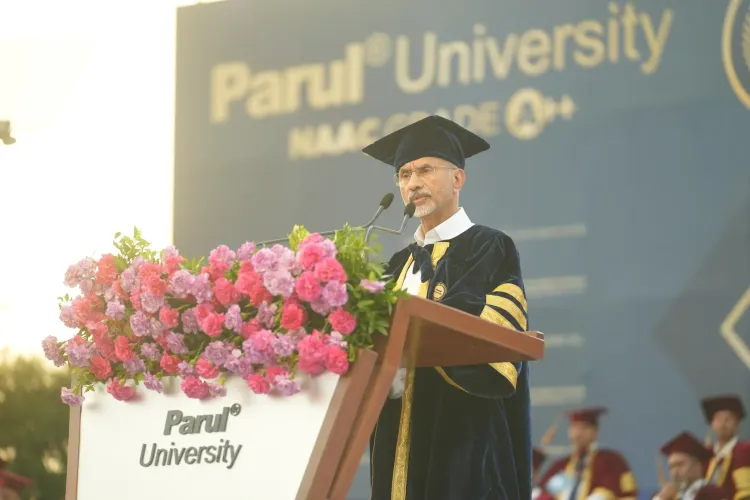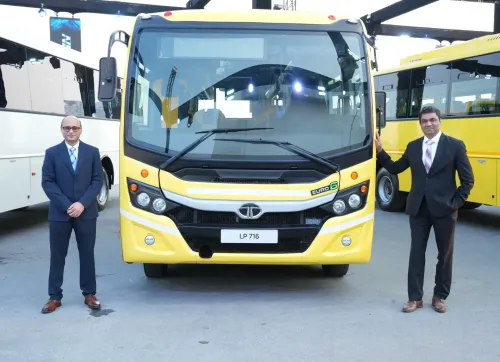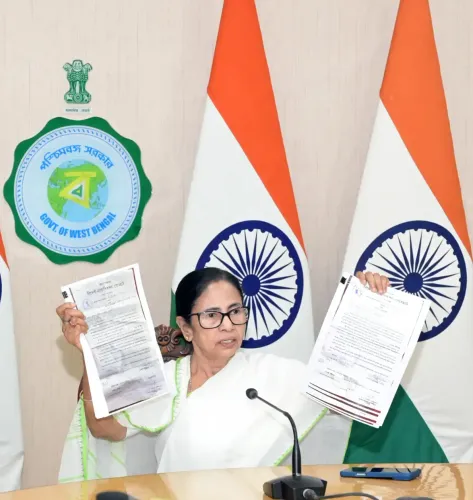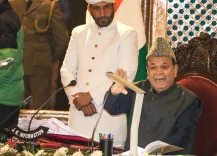Will India Ever Yield to Nuclear Blackmail? EAM Jaishankar Speaks Out

Synopsis
Key Takeaways
- India's unwavering stance against nuclear blackmail is resolute.
- Zero tolerance for terrorism is a core principle.
- Operation Sindoor reflects India's enhanced counter-terrorism capabilities.
- International solidarity is crucial in combating terrorism.
- Promoting Make in India strengthens national self-confidence.
New Delhi, May 30 (NationPress) External Affairs Minister (EAM) S. Jaishankar firmly stated that India will never succumb to nuclear intimidation, emphasizing that those who support, foster, and exploit terrorism must face severe repercussions.
Speaking at the Parul University Convocation in Vadodara, Gujarat, EAM Jaishankar pointed out that recent incidents (Operation Sindoor) have heightened India's vigilance regarding terrorism.
“In Pahalgam, we witnessed an attempt to undermine Kashmir's tourism industry, alongside a malicious effort to incite religious tensions,” he remarked.
EAM Jaishankar highlighted that the atrocity of the attacks demanded a decisive response, which was achieved by dismantling terrorist command centers, particularly in Bahawalpur and Muridke.
“It is essential that those who sponsor, foster, and utilize terrorism are made to bear a significant cost. The necessity for a robust response after the 26/11 incident in Mumbai in 2008 is universally recognized. However, times have evolved, and our determination is more formidable now. Terrorism hubs will no longer find refuge. India's zero tolerance for terrorism is evident in its actions. We will never yield to nuclear coercion. Decisions in the interest of India's national security will be made and continue to be made,” he asserted.
He also noted that India is not isolated in its battle against terrorism, as other nations recognize India’s right to defend itself.
“In today’s world of narratives, it is to be expected that many will express solidarity. Ultimately, diplomacy aims to enhance partnerships with other nations to fortify one’s own stance. Some countries achieve this through regional or historical collectives, while others draw upon faith, language, or culture,” he explained.
EAM Jaishankar reiterated that in India, this has primarily manifested in the form of the “Make in India” initiative and increased use of domestic products and practices.
“Capabilities and confidence grow in tandem, and promoting our talents and skills is integral to India’s progress,” he stated.
He added that during the recent Operation Sindoor, the successful application of indigenous technologies was particularly noteworthy.
“There could be no better rebuttal to those who publicly disparaged ‘Make in India’ and eroded national self-confidence. I sincerely hope that students returning to their respective nations carry this message and insight. It may inspire them to consider similar initiatives at home,” he concluded.









